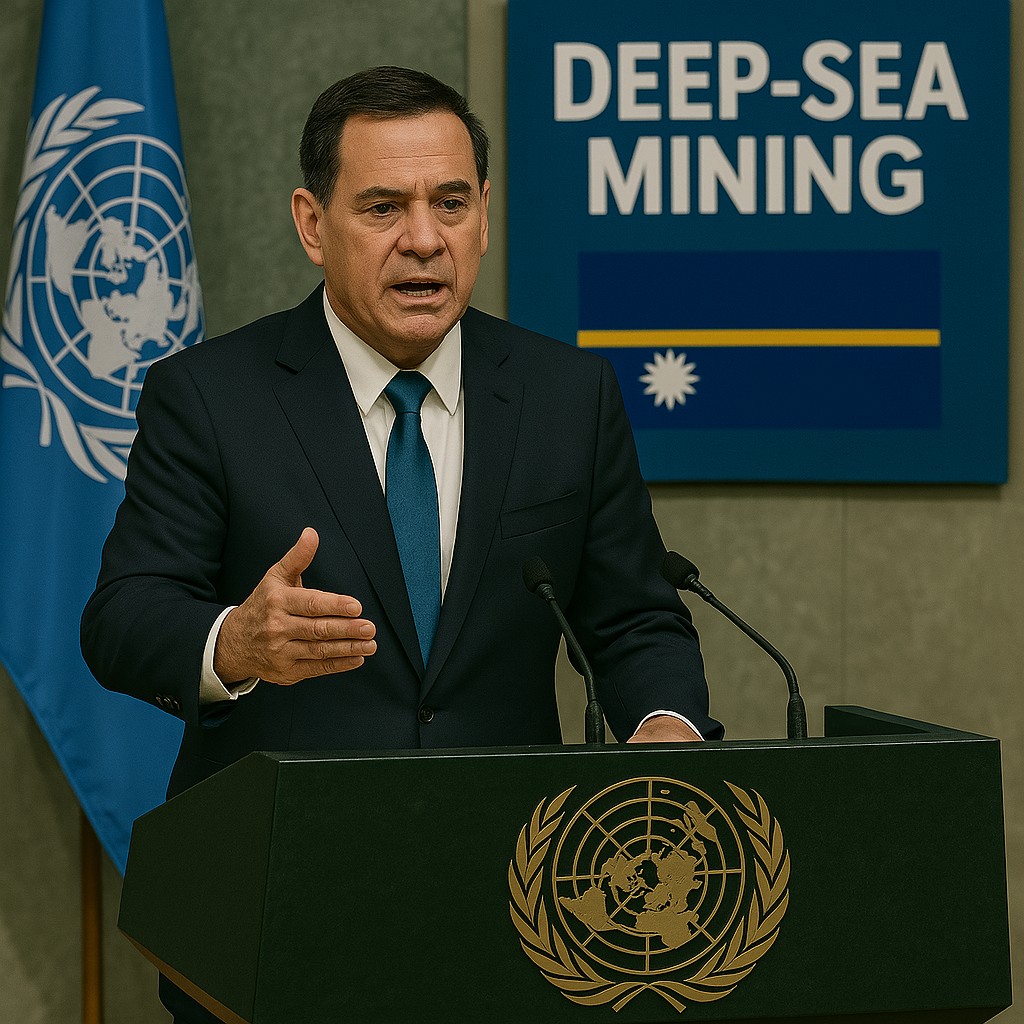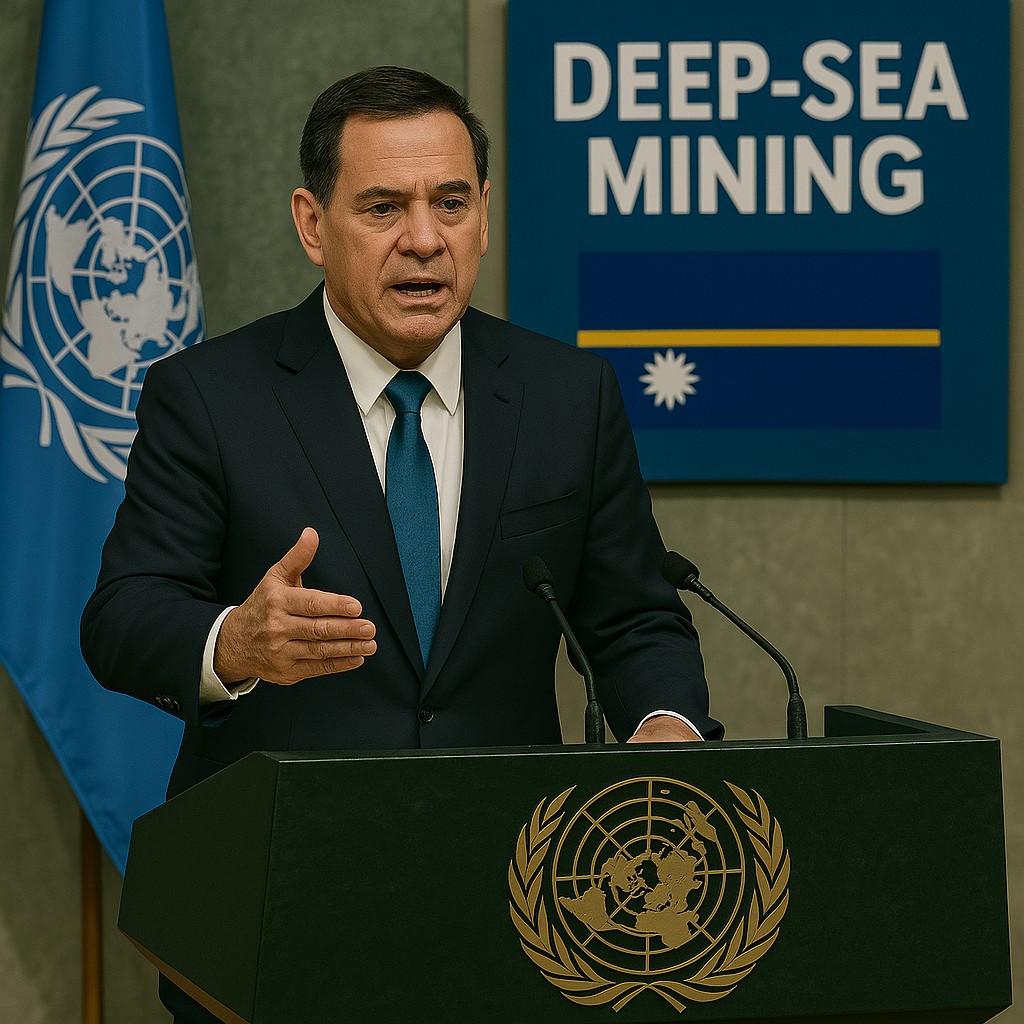
Nauru’s bold push to initiate deep-sea mining in international waters has ignited a contentious debate at the United Nations, pitting economic sovereignty against environmental caution. At the heart of the controversy is Nauru’s partnership with The Metals Company, a Canadian firm seeking to extract polymetallic nodules from the Clarion-Clipperton Zone—an area rich in cobalt, nickel, and manganese, essential for electric vehicle batteries and defense technologies.
During the 79th UN General Assembly, President David W.R. Adeang defended the initiative as an “environmental imperative,” arguing that the most significant risk lies in inaction, not extraction. “We cannot let fear and misinformation hold us back,” Adeang declared, urging the International Seabed Authority (ISA) to finalize regulations and approve mining applications without delay.
Key developments:
- Nauru invoked the two-year rule under the UN Law of the Sea, pressuring the ISA to act on mining regulations
- The Metals Company filed three applications under U.S. law, signaling a pivot away from ISA oversight
- Pacific nations remain divided: Fiji, Palau, and Vanuatu call for a moratorium, while Papua New Guinea and Tonga support exploration.
Critics warn that Nauru’s move could trigger a commercial race to the ocean floor, undermining regional unity and environmental safeguards. Marine scientists argue that the deep-sea ecosystem is poorly understood and vulnerable to irreversible damage. The WWF, BMW, and Samsung have joined calls for a global moratorium until more research is conducted.
Yet for Nauru, the stakes are existential. With limited land and resources, the island nation sees deep-sea mining as a path to economic resilience and climate adaptation. Adeang emphasized that Nauru has adopted the BBNJ Agreement for sustainable ocean use and is investing in infrastructure through its Higher Ground Project.
The debate now shifts to the ISA’s Legal and Technical Commission, which must decide whether to approve Nauru’s application without finalized regulations. The outcome could redefine the balance between sovereignty, sustainability, and strategic competition in the Pacific




